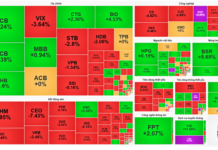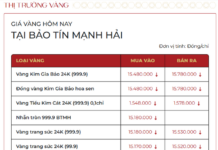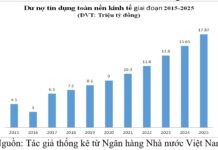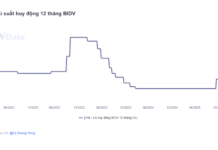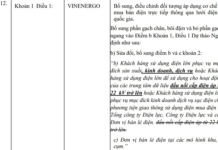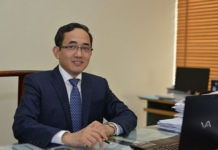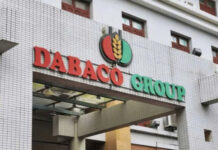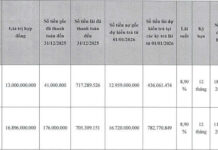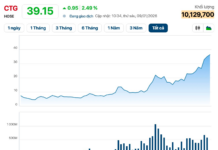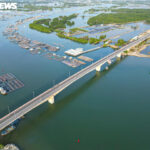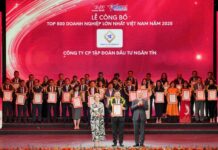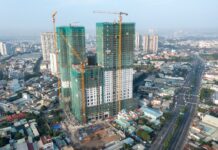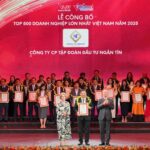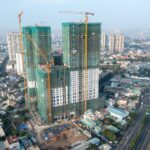Experts believe that establishing an International Financial Center (IFC) in Ho Chi Minh City will not only create a financial hub for Vietnam but also serve as a center for innovation and creativity, connecting Asia with the world.
The benefits extend beyond investment capital, fostering a vibrant international financial center that generates employment, nurtures startups, attracts talent, and positions Vietnam as a crucial player in global finance.
Building the IFC Unleashes Vietnam’s Innovation Wave
Phil Wright, Senior Director of Banking Services at HSBC Vietnam, asserts that Vietnam’s ambition to build an IFC will not only strengthen the capital market but also unleash a wave of innovation, enhancing competitiveness and long-term growth.
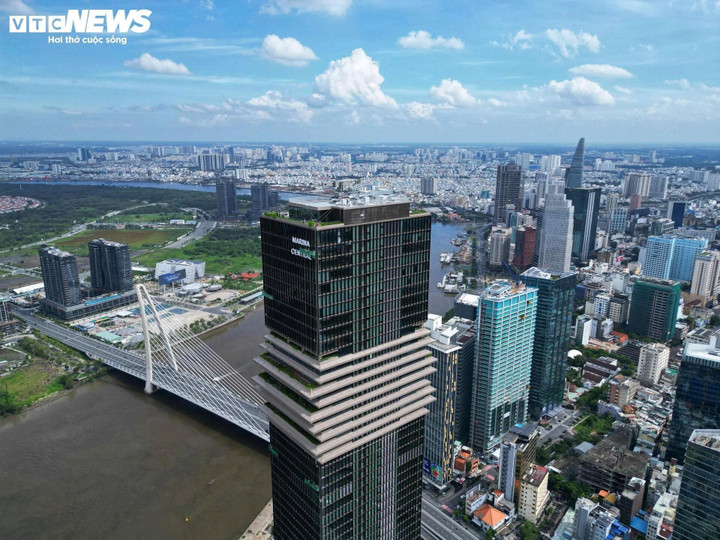
Ho Chi Minh City has prepared the infrastructure and personnel to launch the International Financial Center.
Global financial centers provide a safe environment for testing new technologies, attracting investment, and connecting talent across various sectors.
However, success requires a clear legal framework, stable policies, and a collaborative ecosystem between the public and private sectors.
“A financial center with ‘high innovation, low stability’ risks speculative bubbles, weak oversight, and investor distrust. Conversely, ‘high innovation, high stability’ ensures clear direction, reliable pilot projects, and robust measures for data protection and cybersecurity,” Wright emphasizes.
Assoc. Prof. Dr. Tran Hoang Ngan states that to achieve double-digit growth, Ho Chi Minh City needs significant investment. The IFC will provide a platform to mobilize resources, especially foreign capital.
To attract foreign investors, Ngan says, “Vietnam itself is already attractive. Many international experts view Vietnam’s macroeconomy positively. They see Vietnam’s economy growing from $8 billion to $500 billion, ranking among the top 33 global economies. Inflation and public debt are well-managed.”
“Most importantly, Vietnam has entered a new era of national self-reliance and resilience. These messages inspire confidence in foreign investors.”
“In financial investment, trust is paramount. Investors believe in Vietnam’s growth and are eager to establish a presence at the IFC,” Ngan adds. “I am confident the IFC in Ho Chi Minh City will thrive.”
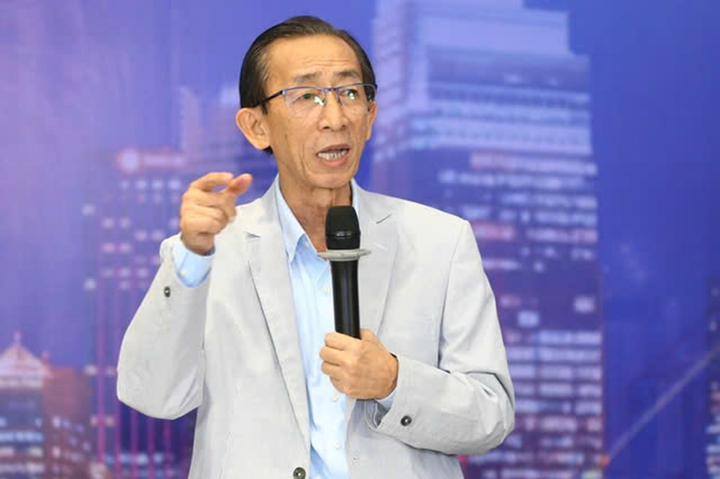
Assoc. Prof. Dr. Tran Hoang Ngan: I believe the IFC in Ho Chi Minh City will soar and develop.
Ngan expects the IFC to feature a foreign currency bond market, enabling Vietnam to mobilize foreign currency for development.
Urban bonds, green bonds, digital assets, and cryptocurrencies are also prioritized, as Vietnamese investors show strong interest in these products.
A critical pillar is offering the most attractive incentives to global financial institutions, establishing their headquarters at the IFC, and building its reputation. These institutions will then attract more players from their networks.
Fortunately, Vietnam’s 50-year development journey includes a robust banking system with over 30 commercial banks, 9 fully foreign-owned banks, and more than 30 foreign bank branches, alongside securities firms, investment funds, and insurance companies.
Ho Chi Minh City also boasts a skilled financial workforce, including experts in digital finance, innovation, and fintech.
Enhancing Competitiveness and Attracting Global Capital
Despite clear plans, experts and investors caution that Ho Chi Minh City must prepare meticulously to address challenges in establishing and operating the IFC.
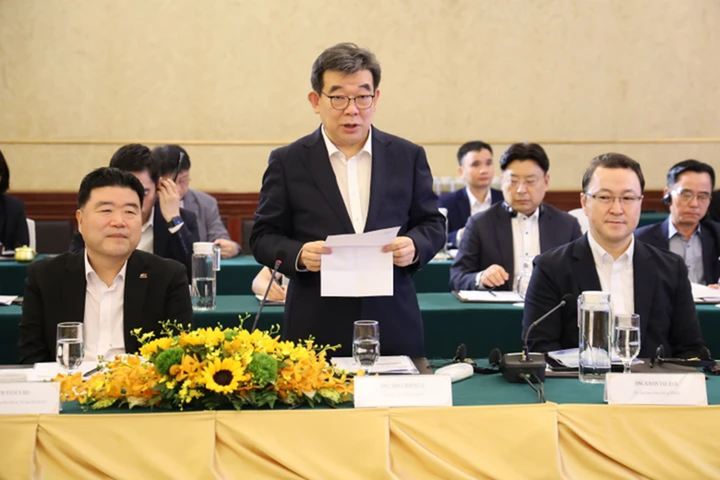
South Korean experts and investors advise on the IFC’s operations at a meeting with Ho Chi Minh City leaders earlier this year.
Some experts find the 2025 launch ambitious. Huynh Minh Tuan, founder of FIDT Investment Consulting, is excited but suggests a trial period before the official launch, ideally in Q2 next year.
Michele D’Ercole, Chairman of the Italian Chamber of Commerce (ICHAM), calls the IFC the most ambitious project in Ho Chi Minh City’s history. He urges swift preparations to meet deadlines, crucial for attracting international capital and projects.
At a recent meeting, the American Chamber of Commerce (AmCham) praised the IFC as a breakthrough reform. If fully implemented, it could position Vietnam as a regional hub for green finance.
AmCham recommends maintaining legal independence, ensuring capital transparency, and establishing a reliable dispute resolution mechanism.
The British Chamber of Commerce (BritCham) agrees that the IFC will enhance competitiveness, attract global capital, and promote sustainable growth. They advise aligning IFC regulations with international standards, using common law, English as the working language, and ensuring transparent governance.
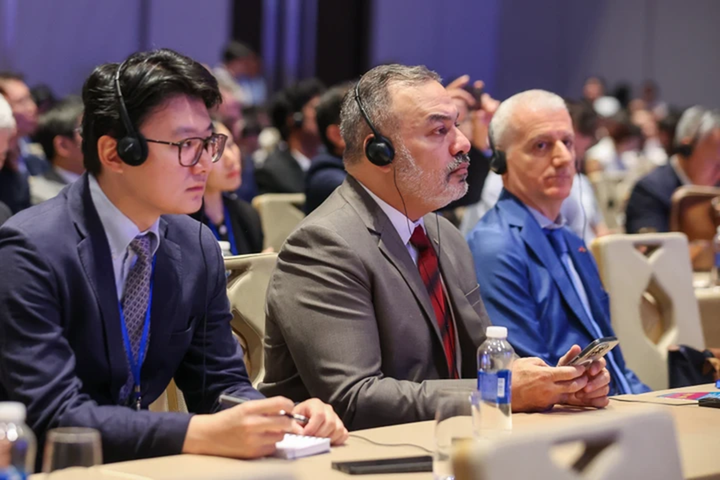
The establishment of the International Financial Center in Ho Chi Minh City has garnered significant interest from foreign experts and investors.
Leveraging existing financial institutions and extending IFC benefits to a broader financial ecosystem, including brokers, consultants, auditors, and training organizations, will support national development goals.
Michael Jaewuk Chin suggests implementing green bonds, carbon credit trading, and renewable energy projects, positioning the IFC as a catalyst for sustainable development.
“The IFC must align with the real economy of Ho Chi Minh City and Da Nang to ensure sustainable growth. Vietnam has long been a top FDI destination. The IFC will facilitate capital mobilization but also serve as a catalyst for financial market liberalization,” says economist Nguyen Minh Cuong.
Panoramic View of the 1,400-Hectare Island Proposed for Urban Development in Ho Chi Minh City
Sun Group envisions the development of the Go Gang Island Urban Area, a sprawling 1,400-hectare project located just a few kilometers from Ho Chi Minh City’s premier coastal tourism hub, as the crow flies.
Which Real Estate Sector Saw the Biggest Price Surge in the Last Decade?
From 2015 to 2025, central Ho Chi Minh City’s real estate prices surged across all segments, though growth rates varied significantly. Land plots led the charge with a staggering 384% increase (from VND 25 million to VND 121 million per square meter), followed by apartments at 197% (VND 31 million to VND 92 million), private houses at 168% (VND 56 million to VND 150 million), and storefront properties at 134% (VND 92 million to VND 215 million).
Vietnam’s Race to Join the Global Semiconductor Map: Can It Keep Pace as the World Shifts?
Global supply chain disruptions and robust policy commitments present a unique opportunity for Vietnam to emerge as a leader in the semiconductor industry, the backbone of the digital economy. However, this potential can only be realized if Vietnam successfully navigates challenges in workforce development, infrastructure enhancement, and regional FDI competition.

